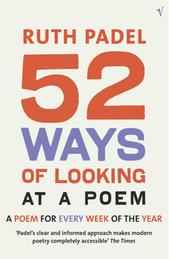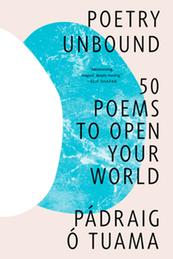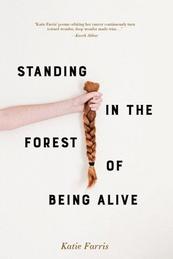Rebecca Foster and Sara Beth West are avid readers and regular contributors of book review coverage for Shelf Awareness. In honor of April as National Poetry Month, we put these two poetry lovers in conversation with each other to talk about their reading habits, what first drew them to the form, how they tend to approach each new collection, who some of their favorite poets are, and more!
 Rebecca Foster: It's so nice to virtually "meet" you, Sara Beth! It was an honor to be asked to contribute some thoughts and recommendations to this year's Poetry issue. I'm curious, have you always been a poetry reader, or did you come to the form over time?
Rebecca Foster: It's so nice to virtually "meet" you, Sara Beth! It was an honor to be asked to contribute some thoughts and recommendations to this year's Poetry issue. I'm curious, have you always been a poetry reader, or did you come to the form over time?
Sara Beth West: I decided poetry was special when I was introduced to "anyone lived in a pretty how town" by e.e. cummings. I was young and in awe, hearing someone play with language in ways I hadn't realized were possible. How about you?
Foster: I remember coming across Shel Silverstein in elementary school, and then Elizabeth Barrett Browning and Langston Hughes in high school. But my strongest early poetry memory is of memorizing Edgar Allan Poe's "The Raven" in middle school. A friend and I took on the challenge and, teacher's pets that we were, recited all 18 stanzas in front of our class.
West: I love that image of middle school you reciting "The Raven," and I'm glad it didn't make you say "Nevermore!" to poetry after that. I'm afraid the way we handle poetry in schools is one of the reasons it's not more popular among adults, even those who consider themselves readers. But you're so right to note the various entry points to poetry and the ways it offers a lifetime's worth of discovery.
 Foster: People seem afraid of poetry: they think they won't understand it, or don't have the vocabulary to describe it. I've picked up the terminology gradually over the years that I've been a poetry reader. Reading 52 Ways of Looking at a Poem by Ruth Padel, in particular, helped me to develop strategies for noticing how a poem works. But I feel like it's primarily an emotional response?
Foster: People seem afraid of poetry: they think they won't understand it, or don't have the vocabulary to describe it. I've picked up the terminology gradually over the years that I've been a poetry reader. Reading 52 Ways of Looking at a Poem by Ruth Padel, in particular, helped me to develop strategies for noticing how a poem works. But I feel like it's primarily an emotional response?
West: Poetry definitely requires a different sort of attention. I try to approach each poem like a complete meal. Some meals are less suited to my taste; others, though, are like brilliant tasting menus, full of unexpected turns and delicious ideas, and at the end, I sit back and reflect on just how good it was, how good it can be. For that reason, I don't love to shovel poems in, one after the other. I take lots of breaks when I'm reading a collection of poems.
Foster: I agree. I think poetry is best read slowly and in silence. A collection can be just 50 pages yet take me hours to read because I have to go back and read particular poems multiple times. Do you read collections in order or jump around? I always read poems in their published order and wouldn't dream of doing otherwise, but maybe you have a more interesting answer!
West: I think of a collection of poems as somewhat like an album or a really good playlist: the artists assemble the collection in the order they think will have the greatest impact. So yes, I read stand-alone collections in their published order. But I also understand the fatigue that can come from reading poem after poem in a collection. I love it when single poems are dropped between other forms, like when single poems appear in a magazine like the New Yorker, or even the way poems will appear on my social feeds.
Foster: So do you also enjoy hearing from lots of different poets through anthologies?
 West: I do! For instance, U.S. Poet Laureate Ada Limón has edited a collection called You Are Here: Poetry in the Natural World (Milkweed, $25; reviewed in this issue), and it introduced me to a few new poets that I now want to seek out. I also dearly love Pádraig Ó'Tuama's Poetry Unbound: 50 Poems to Open Your World (Norton, $17.99), especially because of the brief reflective essays that accompany each poem. What are your thoughts on anthologies?
West: I do! For instance, U.S. Poet Laureate Ada Limón has edited a collection called You Are Here: Poetry in the Natural World (Milkweed, $25; reviewed in this issue), and it introduced me to a few new poets that I now want to seek out. I also dearly love Pádraig Ó'Tuama's Poetry Unbound: 50 Poems to Open Your World (Norton, $17.99), especially because of the brief reflective essays that accompany each poem. What are your thoughts on anthologies?
Foster: For the most part, I prefer individually authored collections because they feel more intimate: you are spending real time with one voice and viewpoint. But every so often I'll read a poetry anthology, such as the thematic ones released in the U.K. by small indie publisher The Emma Press, or Raised by Wolves (Graywolf, $18), and discover lots of new-to-me poets.
 West: Can you think of some poets or collections you would particularly recommend to new poetry readers?
West: Can you think of some poets or collections you would particularly recommend to new poetry readers?
Foster: One of my top recent recommendations has been Dearly by Margaret Atwood (Ecco, $18.99) because it is led by its themes--the poems are generally about what they say they're about, and more material than abstract. She writes about memory, women's rights, environmental crisis, and bereavement. Reading poetry by trusted novelists (like Atwood) and memoirists can be a great way to broaden your experience--Mark Doty, Helen Dunmore, Barbara Kingsolver, James Lasdun, and Patricia Lockwood are some other reliable crossover authors that I've found.
 West: Though I love Atwood, I've never read her poetry, so on the list it goes! I mentioned Pádraig Ó'Tuama, and his podcast Poetry Unbound is one of my go-tos for introducing new readers to the form. His voice and affect are perfect, and the short episodes make it possible to approach each one in a mindful and open manner without feeling like you're making a huge investment. Another favorite to recommend is Clint Smith's Counting Descent (Write Bloody, $17); I reviewed his Above Ground (Little, Brown, $27). Oh, and Ross Gay! Many people came to love him through The Book of Delights (Algonquin, $18.99), but his poetry is wonderful.
West: Though I love Atwood, I've never read her poetry, so on the list it goes! I mentioned Pádraig Ó'Tuama, and his podcast Poetry Unbound is one of my go-tos for introducing new readers to the form. His voice and affect are perfect, and the short episodes make it possible to approach each one in a mindful and open manner without feeling like you're making a huge investment. Another favorite to recommend is Clint Smith's Counting Descent (Write Bloody, $17); I reviewed his Above Ground (Little, Brown, $27). Oh, and Ross Gay! Many people came to love him through The Book of Delights (Algonquin, $18.99), but his poetry is wonderful.
Foster: I read The Book of Delights a couple of summers ago! What are some of your other favorite poetry collections of recent years?
West: Christian Wiman is a singular talent with a remarkable mind; though it's not exclusively poetry, his Zero at the Bone (FSG, $30) was one of my favorite titles in 2023. I was awestruck by Ilya Kaminsky's Deaf Republic (Graywolf, $17). And Limón's The Hurting Kind (Milkweed, $24) arrived right on time for me. What about for you?
 Foster: Pilgrim Bell by Kaveh Akbar (Graywolf, $16) and Lo by Melissa Crowe (University of Iowa, $20) are two that stand out for me. I know that we both loved Standing in the Forest of Being Alive by Katie Farris (Alice James, $18.95) and that we equally admire Wiman's work.
Foster: Pilgrim Bell by Kaveh Akbar (Graywolf, $16) and Lo by Melissa Crowe (University of Iowa, $20) are two that stand out for me. I know that we both loved Standing in the Forest of Being Alive by Katie Farris (Alice James, $18.95) and that we equally admire Wiman's work.
West: Would you say you're drawn in more by a poet's style or by their subject matter?
Foster: The subject matter is usually the immediate attraction (grief and health themes are sure to catch my eye), but if I'm not enjoying the style I know I won't get far. It's almost impossible to define taste in poetry. I enjoy formal approaches and rhyme schemes--sonnets, sestinas, ghazals, pantoums--but am terrible at recognizing them, so I appreciate when poets identify them in the title or an endnote. For Shelf Awareness, I consider four or five poetry collections a month and often reject several within the first few pages. It's hard to predict what will be a successful read for me. I try to read excerpts on a poet's website or Poetry Foundation page before requesting.
West: I do similar reconnaissance before making requests, so my Shelf assignments tend to pay off, especially those that hit in just the right way and become instant favorites. I especially love to come across a debut doing something unique, like Hannah Emerson's The Kissing of Kissing (Milkweed, $16). Perhaps that's what I love most about poetry: it's endlessly adaptable, an invitation to all.

